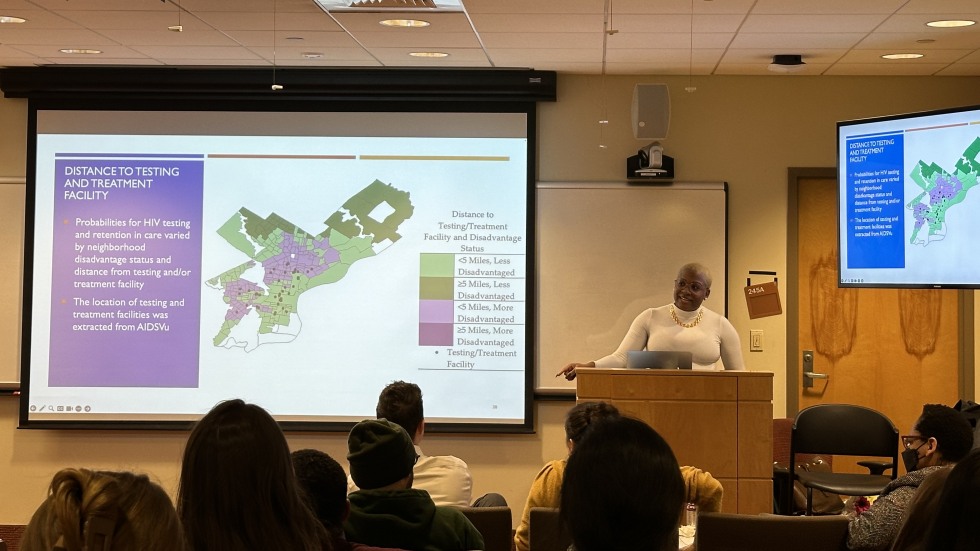Upon completion of the Ph.D. program, students are expected to have proficiency in the following areas:
- Develop a strong foundation in contemporary approaches to epidemiologic methods, and major observational study designs
- Design a research study that can appropriately and efficiently examine an epidemiologic research question of interest; write and submit a proposal to support this research
- Use causal diagrams to identify threats to study validity and potential approaches to mitigating such threats
- Conduct appropriate analyses of epidemiologic data using standard regression models in SAS or R
- Distinguish between association and causation based on counterfactual theory to make causal inference using data obtained from observational studies
- Represent a priori subject- matter knowledge and hypotheses with causal diagrams
- Understand the difference between effect modification and interaction
- Learn to interpret and integrate multiple lines of scientific evidence concerning a particular topic of importance to the field of epidemiology
- Effective communication of scientific findings
- Demonstrate a basic understanding of human physiology and pathophysiology
- Demonstrate mastery of a substantive area
- Review, critically analyze and synthesize existing epidemiologic literature to identify meaningful gaps in current knowledge and formulate research objectives
- Strong understanding of what scientific misconduct is and the impact unethical conduct can cause within and outside of the research community.
All students in the Ph.D. program in Epidemiology are required to take 13 courses for credit, including 8 core courses, 2 or 3 more methods selective courses, and 2 or 3 more substantive selective courses. Each of these courses must be taken for credit and for a grade. Ph.D. students are also required to: a) take PHP1001, an online, noncredit introductory course b) take a noncredit online introductory course on SAS data management, c) participate in the journal club series (course credit optional), and d) take the noncredit Responsible Conduct in Research (RCR) course.
Core Courses:
- PHP 2150 – Foundations in Epidemiologic Research Methods
- PHP 2200 – Intermediate Methods in Epidemiologic Research
- PHP 2250 – Advanced Quantitative Methods for Epidemiologic Research
- PHP 2180 – Interpretation and Application of Epidemiology
- PHP 2510 – Principles of Biostatistics and Data Analysis
- PHP 2511 – Applied Regression Analysis
- PHP 2090 – Research Grant Writing for Public Health
- PHP 2130 – Human Biology for Epidemiology
Our Commitment to Program Diversity and a Culture of Respect
The Brown University Department of Epidemiology is committed to ensuring that we admit students from diverse socioeconomic, cultural, racial, and ethnic backgrounds.
The Department of Epidemiology is committed to creating an inclusive, collaborative climate centered on mutual respect, with the goal of cultivating a productive work and learning environment.





